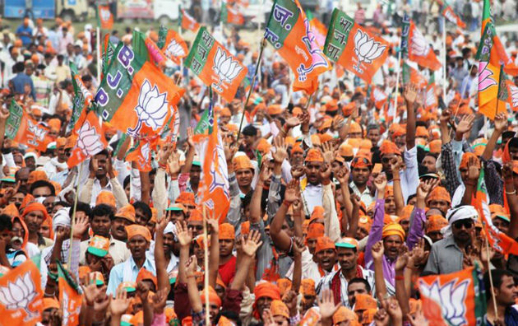An Indian Catholic bishop has voiced concern at an edict from a state education minister that schoolchildren should be forced to adopt a slogan praising India as the land of the Hindus.
Kunwar Vijay Shah, education minister of the central state of Madhya Pradesh, has ordered pupils at state schools in Satna district to replace “Yes, sir” or “Yes, ma’am” with the phrase “Jai Hind” (hail, India) when their names are called out to mark their attendance, according to Catholic news agency UCAN.
“Jai Hind” is commonly used at the end of renditions of India’s national anthem, and politicians use it to end their speeches. However, “Hind” is a shortened form of Hindustan (land of the Hindus), which Indian Christians and Muslims say implicitly excludes them. The official Hindi word for “India” is not “Hind” or “Hindustan”, but “Bharat”.

The instruction is to come into effect on 1 October and Mr Shah has reportedly warned that schools that did not adhere to it would face serious repercussions.
Bishop Anthony Chirayath of Sagar, who heads the education commission of the regional bishops’ council, said the instruction undermined democracy. “It is not good for a healthy democracy to force such orders on students,” he told UCAN.
Fr Maria Stephen, public relations officer of the regional bishops’ council, said people should not have to prove their patriotism by shouting particular slogans. “This is more or less a cultural invasion,” he told UCAN.
Maulana Umar Quasmi, a prominent Muslim leader in Madhya Pradesh, said that such a measure sent out the message that only those who adhered to Hindu nationalism were true patriots.
Mr Shah, a member of the nationalist Bharatiya Janata Party (BJP), said that if the scheme is successful it will be implemented in 50 other districts within the state.
The BJP has been in power in Madhya Pradesh since 2003 and has had so-called “anti-conversion” legislation in place since 1968. Chhattisgarh, Gujarat, Jharkhand, Odisha and, most recently, Jharkhand, have passed similar laws. Penalties can be harsh – in Jharkhand, offenders may face up to four years’ imprisonment and fines of Rs 100,000 (US $1,600). Now that a BJP federal government is in place under President Narendra Modi, critics have questioned its commitment to its non-Hindu citizens.
Last year the Catholic Archbishop of Bhopal, Leo Cornelio, said that Madhya Pradesh’s “anti-conversion law” was being misused and Christians were being falsely accused of carrying out conversions. “Fringe groups try to take advantage of the fact that the BJP is in power,” he said.